Frequent persons on Great-britain's street signs
countries
213 names / 6887 streets
Elizabeth II
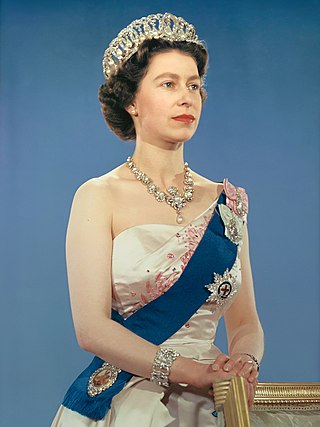 415
Elizabeth II was Queen of the United Kingdom and other Commonwealth realms from 6 February 1952 until her death in 2022. She was queen regnant of 32 sovereign states over the course of her lifetime...
415
Elizabeth II was Queen of the United Kingdom and other Commonwealth realms from 6 February 1952 until her death in 2022. She was queen regnant of 32 sovereign states over the course of her lifetime...
Queen Victoria
 351
Victoria was Queen of the United Kingdom of Great Britain and Ireland from 20 June 1837 until her death in 1901. Her reign of 63 years and 216 days—which was longer than those of any of her...
351
Victoria was Queen of the United Kingdom of Great Britain and Ireland from 20 June 1837 until her death in 1901. Her reign of 63 years and 216 days—which was longer than those of any of her...
John the Apostle
 243
John the Apostle, also known as Saint John the Beloved and, in Eastern Orthodox Christianity, Saint John the Theologian, was one of the Twelve Apostles of Jesus according to the New Testament....
243
John the Apostle, also known as Saint John the Beloved and, in Eastern Orthodox Christianity, Saint John the Theologian, was one of the Twelve Apostles of Jesus according to the New Testament....
George III
 188
George III was King of Great Britain and Ireland from 25 October 1760 until his death in 1820. The Acts of Union 1800 unified Great Britain and Ireland into the United Kingdom of Great Britain and...
188
George III was King of Great Britain and Ireland from 25 October 1760 until his death in 1820. The Acts of Union 1800 unified Great Britain and Ireland into the United Kingdom of Great Britain and...
Mary, mother of Jesus
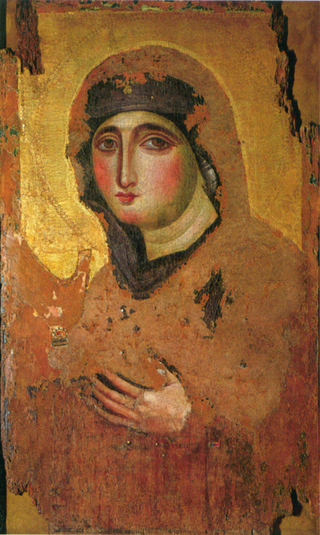 176
Mary was a first-century Jewish woman of Nazareth, the wife of Joseph and the mother of Jesus. She is a central figure of Christianity, venerated under various titles such as virgin or queen, many of...
176
Mary was a first-century Jewish woman of Nazareth, the wife of Joseph and the mother of Jesus. She is a central figure of Christianity, venerated under various titles such as virgin or queen, many of...
Edward VII
 159
Edward VII was King of the United Kingdom and the British Dominions, and Emperor of India, from 22 January 1901 until his death in 1910.
159
Edward VII was King of the United Kingdom and the British Dominions, and Emperor of India, from 22 January 1901 until his death in 1910.
Arthur Wellesley, 1st Duke of Wellington
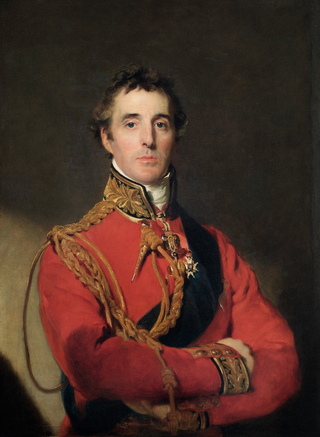 157
Field Marshal Arthur Wellesley, 1st Duke of Wellington, was an Anglo-Irish statesman, soldier, and Tory politician who was one of the leading military and political figures of 19th-century Britain,...
157
Field Marshal Arthur Wellesley, 1st Duke of Wellington, was an Anglo-Irish statesman, soldier, and Tory politician who was one of the leading military and political figures of 19th-century Britain,...
James the Great
 148
James the Great was one of the Twelve Apostles of Jesus. According to the New Testament, he was the second of the apostles to die, and the first to be martyred. Saint James is the patron saint of...
148
James the Great was one of the Twelve Apostles of Jesus. According to the New Testament, he was the second of the apostles to die, and the first to be martyred. Saint James is the patron saint of...
Saint Peter
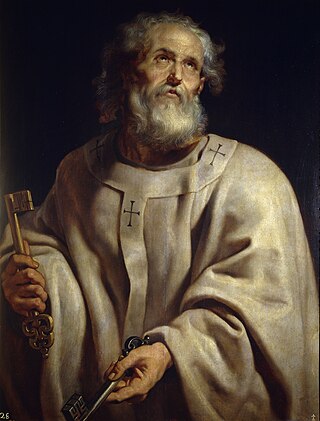 116
Saint Peter, also known as Peter the Apostle, Simon Peter, Simeon, Simon, or Cephas, was one of the Twelve Apostles of Jesus Christ and one of the first leaders of the early Christian Church. He...
116
Saint Peter, also known as Peter the Apostle, Simon Peter, Simeon, Simon, or Cephas, was one of the Twelve Apostles of Jesus Christ and one of the first leaders of the early Christian Church. He...
Edward Smith-Stanley, 14th Earl of Derby
 116
Edward George Geoffrey Smith-Stanley, 14th Earl of Derby,, known as Lord Stanley from 1834 to 1851, was a British statesman and Conservative politician who served three times as Prime Minister of the...
116
Edward George Geoffrey Smith-Stanley, 14th Earl of Derby,, known as Lord Stanley from 1834 to 1851, was a British statesman and Conservative politician who served three times as Prime Minister of the...
Princess Alexandra, The Honourable Lady Ogilvy
 115
Princess Alexandra, The Honourable Lady Ogilvy, is a member of the British royal family. Queen Elizabeth II and Alexandra were first cousins through their fathers, King George VI and Prince George,...
115
Princess Alexandra, The Honourable Lady Ogilvy, is a member of the British royal family. Queen Elizabeth II and Alexandra were first cousins through their fathers, King George VI and Prince George,...
Andrew the Apostle
 105
Andrew the Apostle, also called Saint Andrew, was an apostle of Jesus. According to the New Testament, he was a fisherman and one of the Twelve Apostles chosen by Jesus. The title First-Called stems...
105
Andrew the Apostle, also called Saint Andrew, was an apostle of Jesus. According to the New Testament, he was a fisherman and one of the Twelve Apostles chosen by Jesus. The title First-Called stems...
John Milton
 92
John Milton was an English poet, polemicist, and civil servant. His 1667 epic poem Paradise Lost, written in blank verse and including twelve books, was written in a time of immense religious flux...
92
John Milton was an English poet, polemicist, and civil servant. His 1667 epic poem Paradise Lost, written in blank verse and including twelve books, was written in a time of immense religious flux...
Isaac Newton
 90
Sir Isaac Newton was an English polymath active as a mathematician, physicist, astronomer, alchemist, theologian, and author who was described in his time as a natural philosopher. He was a key...
90
Sir Isaac Newton was an English polymath active as a mathematician, physicist, astronomer, alchemist, theologian, and author who was described in his time as a natural philosopher. He was a key...
Charles George Gordon
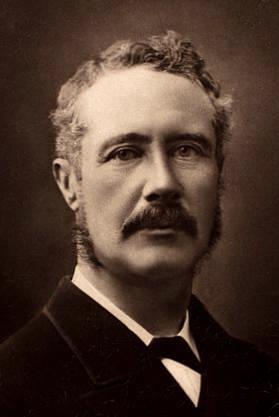 90
Major-General Charles George Gordon CB, also known as Chinese Gordon, Gordon Pasha, and Gordon of Khartoum, was a British Army officer and administrator. He saw action in the Crimean War as an...
90
Major-General Charles George Gordon CB, also known as Chinese Gordon, Gordon Pasha, and Gordon of Khartoum, was a British Army officer and administrator. He saw action in the Crimean War as an...
Horatio Nelson, 1st Viscount Nelson
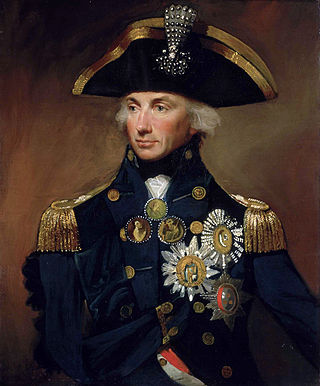 89
Vice-Admiral Horatio Nelson, 1st Viscount Nelson, 1st Duke of Bronte was a British flag officer in the Royal Navy. His inspirational leadership, grasp of strategy and unconventional tactics brought...
89
Vice-Admiral Horatio Nelson, 1st Viscount Nelson, 1st Duke of Bronte was a British flag officer in the Royal Navy. His inspirational leadership, grasp of strategy and unconventional tactics brought...
Michael (archangel)
 85
Michael, also called Saint Michael the Archangel, Archangel Michael and Saint Michael the Taxiarch is an archangel in Judaism, Christianity, Islam, and the Baha'i faith. The earliest surviving...
85
Michael, also called Saint Michael the Archangel, Archangel Michael and Saint Michael the Taxiarch is an archangel in Judaism, Christianity, Islam, and the Baha'i faith. The earliest surviving...
Martin of Tours
 84
Martin of Tours, also known as Martin the Merciful, was the third bishop of Tours. He has become one of the most familiar and recognizable Christian saints in France, heralded as the patron saint of...
84
Martin of Tours, also known as Martin the Merciful, was the third bishop of Tours. He has become one of the most familiar and recognizable Christian saints in France, heralded as the patron saint of...
Oliver Cromwell
 81
Oliver Cromwell was an English statesman, politician, and soldier, widely regarded as one of the most important figures in the history of the British Isles. He came to prominence during the 1639 to...
81
Oliver Cromwell was an English statesman, politician, and soldier, widely regarded as one of the most important figures in the history of the British Isles. He came to prominence during the 1639 to...
Thomas the Apostle
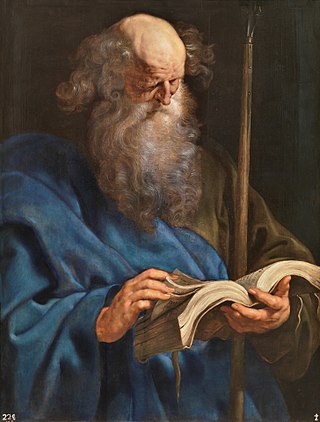 81
Thomas the Apostle, also known as Didymus, was one of the Twelve Apostles of Jesus according to the New Testament. Thomas is commonly known as "Doubting Thomas" because he initially doubted the...
81
Thomas the Apostle, also known as Didymus, was one of the Twelve Apostles of Jesus according to the New Testament. Thomas is commonly known as "Doubting Thomas" because he initially doubted the...
Edward VIII
 75
Edward VIII, later known as the Duke of Windsor, was King of the United Kingdom and the Dominions of the British Empire, and Emperor of India, from 20 January 1936 until his abdication in December of...
75
Edward VIII, later known as the Duke of Windsor, was King of the United Kingdom and the Dominions of the British Empire, and Emperor of India, from 20 January 1936 until his abdication in December of...
Winston Churchill
 74
Sir Winston Leonard Spencer Churchill was a British statesman, soldier, and writer who twice served as Prime Minister of the United Kingdom, from 1940 to 1945 during the Second World War, and again...
74
Sir Winston Leonard Spencer Churchill was a British statesman, soldier, and writer who twice served as Prime Minister of the United Kingdom, from 1940 to 1945 during the Second World War, and again...
Paul the Apostle
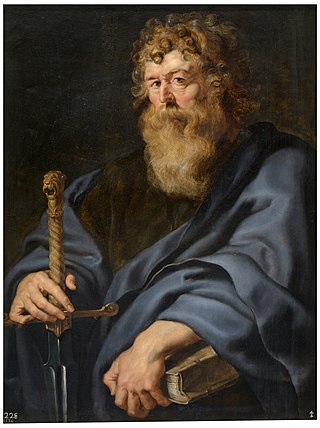 73
Paul, commonly known as Paul the Apostle and Saint Paul, was a Christian apostle who spread the teachings of Jesus in the first-century world. For his contributions towards the New Testament, he is...
73
Paul, commonly known as Paul the Apostle and Saint Paul, was a Christian apostle who spread the teachings of Jesus in the first-century world. For his contributions towards the New Testament, he is...
Bertrand Russell
 71
Bertrand Arthur William Russell, 3rd Earl Russell, was a British mathematician, logician, philosopher, and public intellectual. He had influence on mathematics, logic, set theory, and various areas...
71
Bertrand Arthur William Russell, 3rd Earl Russell, was a British mathematician, logician, philosopher, and public intellectual. He had influence on mathematics, logic, set theory, and various areas...
Abraham Lincoln
 70
Abraham Lincoln was an American lawyer, politician, and statesman, who served as the 16th president of the United States, from 1861 until his assassination in 1865. Lincoln led the United States...
70
Abraham Lincoln was an American lawyer, politician, and statesman, who served as the 16th president of the United States, from 1861 until his assassination in 1865. Lincoln led the United States...
Saint George
 69
Saint George, also George of Lydda, was an early Christian martyr who is venerated as a saint in Christianity. According to tradition, he was a soldier in the Roman army. Of Cappadocian Greek origin,...
69
Saint George, also George of Lydda, was an early Christian martyr who is venerated as a saint in Christianity. According to tradition, he was a soldier in the Roman army. Of Cappadocian Greek origin,...
Tudors of Penmynydd
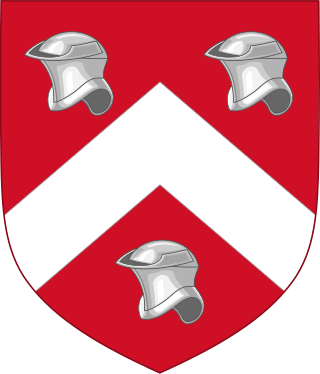 67
The Tudors of Penmynydd were a noble and aristocratic family, connected with the village of Penmynydd in Anglesey, North Wales, who were very influential in Welsh politics. From this family arose Sir...
67
The Tudors of Penmynydd were a noble and aristocratic family, connected with the village of Penmynydd in Anglesey, North Wales, who were very influential in Welsh politics. From this family arose Sir...
Robert Falcon Scott
 65
Captain Robert Falcon Scott was a British Royal Navy officer and explorer who led two expeditions to the Antarctic regions: the Discovery expedition of 1901–04 and the Terra Nova expedition of...
65
Captain Robert Falcon Scott was a British Royal Navy officer and explorer who led two expeditions to the Antarctic regions: the Discovery expedition of 1901–04 and the Terra Nova expedition of...
Henry Cavendish
 62
Henry Cavendish was an English natural philosopher and scientist who was an important experimental and theoretical chemist and physicist. He is noted for his discovery of hydrogen, which he termed...
62
Henry Cavendish was an English natural philosopher and scientist who was an important experimental and theoretical chemist and physicist. He is noted for his discovery of hydrogen, which he termed...
Saint Nicholas
 60
Saint Nicholas of Myra, also known as Nicholas of Bari, was an early Christian bishop of Greek descent from the maritime city of Patara in Anatolia during the time of the Roman Empire. Because of the...
60
Saint Nicholas of Myra, also known as Nicholas of Bari, was an early Christian bishop of Greek descent from the maritime city of Patara in Anatolia during the time of the Roman Empire. Because of the...
Harold Wilson
 58
James Harold Wilson, Baron Wilson of Rievaulx, was a British statesman and Labour Party politician who served as Prime Minister of the United Kingdom twice, from October 1964 to June 1970 and again...
58
James Harold Wilson, Baron Wilson of Rievaulx, was a British statesman and Labour Party politician who served as Prime Minister of the United Kingdom twice, from October 1964 to June 1970 and again...
Richard Burton
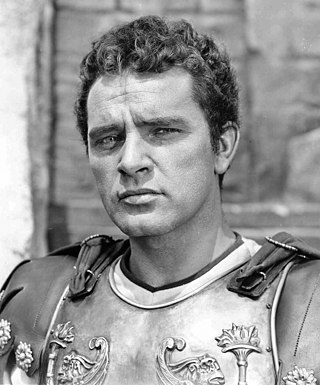 57
Richard Burton was a Welsh actor.
57
Richard Burton was a Welsh actor.
Alfred, Lord Tennyson
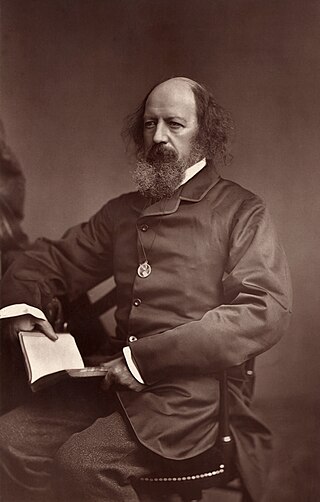 56
Alfred Tennyson, 1st Baron Tennyson,, was an English poet. He was the Poet Laureate during much of Queen Victoria's reign. In 1829, Tennyson was awarded the Chancellor's Gold Medal at Cambridge for...
56
Alfred Tennyson, 1st Baron Tennyson,, was an English poet. He was the Poet Laureate during much of Queen Victoria's reign. In 1829, Tennyson was awarded the Chancellor's Gold Medal at Cambridge for...
Saint David
 56
David was a Welsh Christian prelate who served as Bishop of Mynyw during the 6th century. He is the patron saint of Wales.
56
David was a Welsh Christian prelate who served as Bishop of Mynyw during the 6th century. He is the patron saint of Wales.
Saint Margaret of Scotland
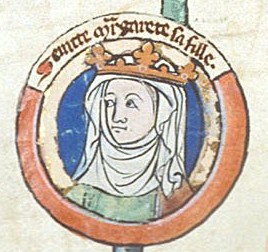 56
Saint Margaret of Scotland, also known as Margaret of Wessex, was an English princess and a Scottish queen. Margaret was sometimes called "The Pearl of Scotland". Born in the Kingdom of Hungary to...
56
Saint Margaret of Scotland, also known as Margaret of Wessex, was an English princess and a Scottish queen. Margaret was sometimes called "The Pearl of Scotland". Born in the Kingdom of Hungary to...
Saint Stephen
 54
Stephen is traditionally venerated as the protomartyr or first martyr of Christianity. According to the Acts of the Apostles, he was a deacon in the early church at Jerusalem who angered members of...
54
Stephen is traditionally venerated as the protomartyr or first martyr of Christianity. According to the Acts of the Apostles, he was a deacon in the early church at Jerusalem who angered members of...
Florence Nightingale
 54
Florence Nightingale was an English social reformer, statistician and the founder of modern nursing. Nightingale came to prominence while serving as a manager and trainer of nurses during the Crimean...
54
Florence Nightingale was an English social reformer, statistician and the founder of modern nursing. Nightingale came to prominence while serving as a manager and trainer of nurses during the Crimean...
Catherine of Alexandria
 54
Catherine of Alexandria, also spelled Katherine is, according to tradition, a Christian saint and virgin, who was martyred in the early fourth century at the hands of the emperor Maxentius. According...
54
Catherine of Alexandria, also spelled Katherine is, according to tradition, a Christian saint and virgin, who was martyred in the early fourth century at the hands of the emperor Maxentius. According...
Francis of Assisi
 52
Giovanni di Pietro di Bernardone, known as Francis of Assisi, was an Italian mystic, poet and Catholic friar who founded the religious order of the Franciscans. He was inspired to lead a Christian...
52
Giovanni di Pietro di Bernardone, known as Francis of Assisi, was an Italian mystic, poet and Catholic friar who founded the religious order of the Franciscans. He was inspired to lead a Christian...
Lord Byron
 52
George Gordon Byron, 6th Baron Byron was a British poet and peer. He is one of the major figures of the Romantic movement, and is regarded as being among the greatest of English poets. Among his...
52
George Gordon Byron, 6th Baron Byron was a British poet and peer. He is one of the major figures of the Romantic movement, and is regarded as being among the greatest of English poets. Among his...
John Wesley
 49
John Wesley was an English cleric, theologian, and evangelist who was a leader of a revival movement within the Church of England known as Methodism. The societies he founded became the dominant form...
49
John Wesley was an English cleric, theologian, and evangelist who was a leader of a revival movement within the Church of England known as Methodism. The societies he founded became the dominant form...
John Peel
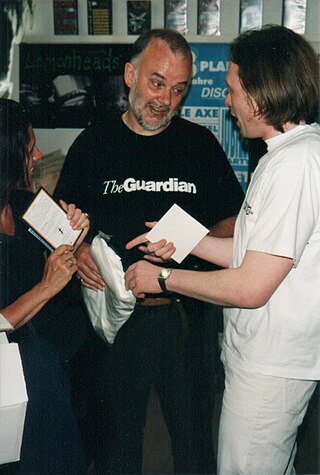 47
John Robert Parker Ravenscroft, better known as John Peel, was an English radio presenter and journalist. He was the longest-serving of the original disc jockeys on BBC Radio 1, broadcasting...
47
John Robert Parker Ravenscroft, better known as John Peel, was an English radio presenter and journalist. He was the longest-serving of the original disc jockeys on BBC Radio 1, broadcasting...
Leonard of Noblac
 46
Leonard of Noblac, is a Frankish saint closely associated with the town and abbey of Saint-Léonard-de-Noblat, in Haute-Vienne, in the Limousin region of France. He was converted to Christianity along...
46
Leonard of Noblac, is a Frankish saint closely associated with the town and abbey of Saint-Léonard-de-Noblat, in Haute-Vienne, in the Limousin region of France. He was converted to Christianity along...
William Shakespeare
 46
William Shakespeare was an English playwright, poet, and actor. He is widely regarded as the greatest writer in the English language and the world's pre-eminent dramatist. He is often called...
46
William Shakespeare was an English playwright, poet, and actor. He is widely regarded as the greatest writer in the English language and the world's pre-eminent dramatist. He is often called...
T. E. Lawrence
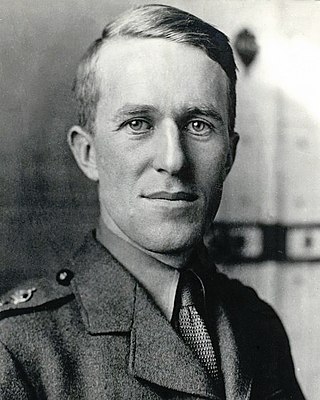 44
Thomas Edward Lawrence was a British archaeologist, army officer, diplomat, and writer who became renowned for his role in the Arab Revolt (1916–1918) and the Sinai and Palestine Campaign (1915–1918)...
44
Thomas Edward Lawrence was a British archaeologist, army officer, diplomat, and writer who became renowned for his role in the Arab Revolt (1916–1918) and the Sinai and Palestine Campaign (1915–1918)...
King Arthur
 44
King Arthur is a legendary king of Britain, a hero of English mythology, and a central figure in the medieval literary tradition known as the Matter of Britain.
44
King Arthur is a legendary king of Britain, a hero of English mythology, and a central figure in the medieval literary tradition known as the Matter of Britain.
Alfred the Great
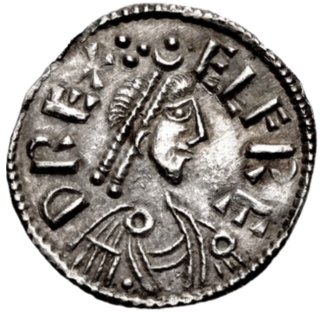 42
Alfred the Great was King of the West Saxons from 871 to 886, and King of the Anglo-Saxons from 886 until his death in 899. He was the youngest son of King Æthelwulf and his first wife Osburh, who...
42
Alfred the Great was King of the West Saxons from 871 to 886, and King of the Anglo-Saxons from 886 until his death in 899. He was the youngest son of King Æthelwulf and his first wife Osburh, who...
Isambard Kingdom Brunel
 40
Isambard Kingdom Brunel was a British civil engineer and mechanical engineer who is considered "one of the most ingenious and prolific figures in engineering history", "one of the 19th-century...
40
Isambard Kingdom Brunel was a British civil engineer and mechanical engineer who is considered "one of the most ingenious and prolific figures in engineering history", "one of the 19th-century...
Mark the Evangelist
 40
Mark the Evangelist also known as John Mark or Saint Mark, is the person who is traditionally ascribed to be the author of the Gospel of Mark. Modern Bible scholars have concluded that the Gospel of...
40
Mark the Evangelist also known as John Mark or Saint Mark, is the person who is traditionally ascribed to be the author of the Gospel of Mark. Modern Bible scholars have concluded that the Gospel of...
Donald Campbell
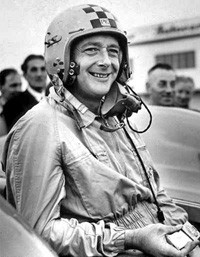 40
Donald Malcolm Campbell, was a British speed record breaker who broke eight absolute world speed records on water and on land in the 1950s and 1960s. He remains the only person to set both world land...
40
Donald Malcolm Campbell, was a British speed record breaker who broke eight absolute world speed records on water and on land in the 1950s and 1960s. He remains the only person to set both world land...
Luke the Evangelist
 40
Luke the Evangelist is one of the Four Evangelists—the four traditionally ascribed authors of the canonical gospels. The Early Church Fathers ascribed to him authorship of both the Gospel of Luke and...
40
Luke the Evangelist is one of the Four Evangelists—the four traditionally ascribed authors of the canonical gospels. The Early Church Fathers ascribed to him authorship of both the Gospel of Luke and...
Adam Smith
 39
Adam Smith was a Scottish economist and philosopher who was a pioneer in the thinking of political economy and key figure during the Scottish Enlightenment. Seen by some as "The Father of Economics"...
39
Adam Smith was a Scottish economist and philosopher who was a pioneer in the thinking of political economy and key figure during the Scottish Enlightenment. Seen by some as "The Father of Economics"...
Henry VIII
 38
Henry VIII was King of England from 22 April 1509 until his death in 1547. Henry is known for his six marriages and his efforts to have his first marriage annulled. His disagreement with Pope Clement...
38
Henry VIII was King of England from 22 April 1509 until his death in 1547. Henry is known for his six marriages and his efforts to have his first marriage annulled. His disagreement with Pope Clement...
Saint Alban
 36
Saint Alban is venerated as the first-recorded British Christian martyr, for which reason he is considered to be the British protomartyr. Along with fellow Saints Julius and Aaron, Alban is one of...
36
Saint Alban is venerated as the first-recorded British Christian martyr, for which reason he is considered to be the British protomartyr. Along with fellow Saints Julius and Aaron, Alban is one of...
Helena, mother of Constantine I
 36
Flavia Julia Helena, also known as Helena of Constantinople and in Christianity as Saint Helena, was an Augusta of the Roman Empire and mother of Emperor Constantine the Great. She was born in the...
36
Flavia Julia Helena, also known as Helena of Constantinople and in Christianity as Saint Helena, was an Augusta of the Roman Empire and mother of Emperor Constantine the Great. She was born in the...
John Harrison
 34
John Harrison was an English carpenter and clockmaker who invented the marine chronometer, a long-sought-after device for solving the problem of calculating longitude while at sea.
34
John Harrison was an English carpenter and clockmaker who invented the marine chronometer, a long-sought-after device for solving the problem of calculating longitude while at sea.
Saint Anne
 34
According to apocrypha, as well as Christian and Islamic tradition, Saint Anne was the mother of Mary, the wife of Joachim and the maternal grandmother of Jesus. Mary's mother is not named in the...
34
According to apocrypha, as well as Christian and Islamic tradition, Saint Anne was the mother of Mary, the wife of Joachim and the maternal grandmother of Jesus. Mary's mother is not named in the...
William Booth
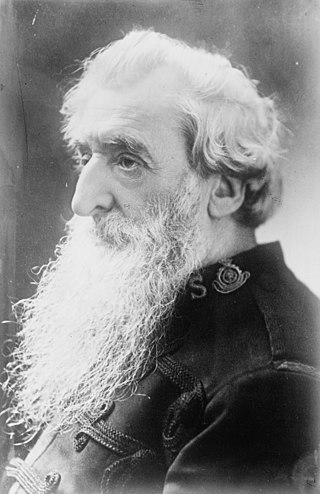 34
William Booth was an English Methodist preacher who, along with his wife, Catherine, founded the Salvation Army and became its first General (1878–1912). The Christian movement with a quasi-military...
34
William Booth was an English Methodist preacher who, along with his wife, Catherine, founded the Salvation Army and became its first General (1878–1912). The Christian movement with a quasi-military...
John F. Kennedy
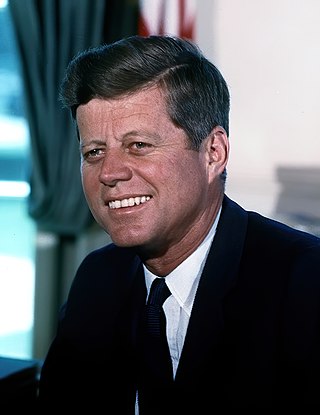 33
John Fitzgerald Kennedy, often referred to as JFK, was an American politician who served as the 35th president of the United States from 1961 until his assassination in 1963. He was the youngest...
33
John Fitzgerald Kennedy, often referred to as JFK, was an American politician who served as the 35th president of the United States from 1961 until his assassination in 1963. He was the youngest...
Thomas Gainsborough
 33
Thomas Gainsborough was an English portrait and landscape painter, draughtsman, and printmaker. Along with his rival Sir Joshua Reynolds, he is considered one of the most important British artists of...
33
Thomas Gainsborough was an English portrait and landscape painter, draughtsman, and printmaker. Along with his rival Sir Joshua Reynolds, he is considered one of the most important British artists of...
Geoffrey Chaucer
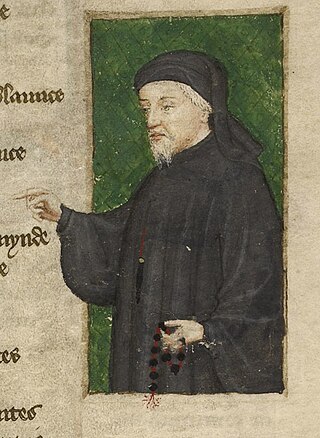 33
Geoffrey Chaucer was an English poet, author, and civil servant best known for The Canterbury Tales. He has been called the "father of English literature", or, alternatively, the "father of English...
33
Geoffrey Chaucer was an English poet, author, and civil servant best known for The Canterbury Tales. He has been called the "father of English literature", or, alternatively, the "father of English...
Michael Crawford
 32
Michael Patrick Smith, known professionally as Michael Crawford, is an English actor, comedian, and singer.
32
Michael Patrick Smith, known professionally as Michael Crawford, is an English actor, comedian, and singer.
Bernard Montgomery
 32
Field Marshal Bernard Law Montgomery, 1st Viscount Montgomery of Alamein,, nicknamed "Monty", was a senior British Army officer who served in the First World War, the Irish War of Independence and...
32
Field Marshal Bernard Law Montgomery, 1st Viscount Montgomery of Alamein,, nicknamed "Monty", was a senior British Army officer who served in the First World War, the Irish War of Independence and...
David Livingstone
 32
David Livingstone was a Scottish physician, Congregationalist, pioneer Christian missionary with the London Missionary Society, and an explorer in Africa. Livingstone was married to Mary Moffat...
32
David Livingstone was a Scottish physician, Congregationalist, pioneer Christian missionary with the London Missionary Society, and an explorer in Africa. Livingstone was married to Mary Moffat...
Kathleen Lonsdale
 32
Dame Kathleen Lonsdale was an Irish crystallographer, pacifist, and prison reform activist. She proved, in 1929, that the benzene ring is flat by using X-ray diffraction methods to elucidate the...
32
Dame Kathleen Lonsdale was an Irish crystallographer, pacifist, and prison reform activist. She proved, in 1929, that the benzene ring is flat by using X-ray diffraction methods to elucidate the...
Saint Lawrence
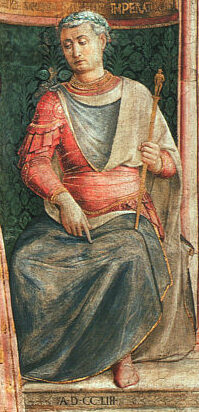 30
Saint Lawrence or Laurence was one of the seven deacons of the city of Rome under Pope Sixtus II who were martyred in the persecution of the Christians that the Roman Emperor Valerian ordered in 258.
30
Saint Lawrence or Laurence was one of the seven deacons of the city of Rome under Pope Sixtus II who were martyred in the persecution of the Christians that the Roman Emperor Valerian ordered in 258.
George Washington
 30
George Washington was an American Founding Father, military officer, and politician who served as the first president of the United States from 1789 to 1797. Appointed by the Second Continental...
30
George Washington was an American Founding Father, military officer, and politician who served as the first president of the United States from 1789 to 1797. Appointed by the Second Continental...
George Stephenson
 29
George Stephenson was an English civil engineer and mechanical engineer during the Industrial Revolution. Renowned as the "Father of Railways", Stephenson was considered by the Victorians as a great...
29
George Stephenson was an English civil engineer and mechanical engineer during the Industrial Revolution. Renowned as the "Father of Railways", Stephenson was considered by the Victorians as a great...
G. H. Hardy
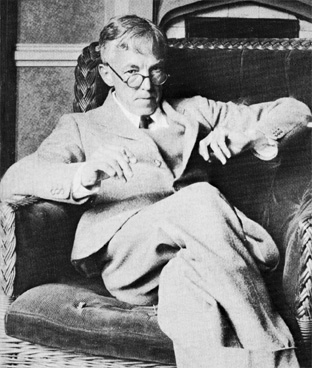 29
Godfrey Harold Hardy was an English mathematician, known for his achievements in number theory and mathematical analysis. In biology, he is known for the Hardy–Weinberg principle, a basic principle...
29
Godfrey Harold Hardy was an English mathematician, known for his achievements in number theory and mathematical analysis. In biology, he is known for the Hardy–Weinberg principle, a basic principle...
Francis Drake
 29
Sir Francis Drake was an English explorer and privateer best known for his circumnavigation of the world in a single expedition between 1577 and 1580. This was the first English circumnavigation, and...
29
Sir Francis Drake was an English explorer and privateer best known for his circumnavigation of the world in a single expedition between 1577 and 1580. This was the first English circumnavigation, and...
William Blake
 28
William Blake was an English poet, painter, and printmaker. Largely unrecognised during his life, Blake is now considered a seminal figure in the history of the poetry and visual art of the Romantic...
28
William Blake was an English poet, painter, and printmaker. Largely unrecognised during his life, Blake is now considered a seminal figure in the history of the poetry and visual art of the Romantic...
James Cook
 28
Captain James Cook was a British explorer, cartographer and naval officer famous for his three voyages between 1768 and 1779 in the Pacific Ocean and to New Zealand and Australia in particular. He...
28
Captain James Cook was a British explorer, cartographer and naval officer famous for his three voyages between 1768 and 1779 in the Pacific Ocean and to New Zealand and Australia in particular. He...
Alexander Fleming
 27
Sir Alexander Fleming was a Scottish physician and microbiologist, best known for discovering the world's first broadly effective antibiotic substance, which he named penicillin. His discovery in...
27
Sir Alexander Fleming was a Scottish physician and microbiologist, best known for discovering the world's first broadly effective antibiotic substance, which he named penicillin. His discovery in...
Edmund the Martyr
 27
Edmund the Martyr was king of East Anglia from about 855 until his death.
27
Edmund the Martyr was king of East Anglia from about 855 until his death.
Saint Giles
 26
Saint Giles, also known as Giles the Hermit, was a hermit or monk active in the lower Rhône most likely in the 7th century. Revered as a saint, his cult became widely diffused but his hagiography is...
26
Saint Giles, also known as Giles the Hermit, was a hermit or monk active in the lower Rhône most likely in the 7th century. Revered as a saint, his cult became widely diffused but his hagiography is...
Cuthbert
 26
Cuthbert of Lindisfarne was an Anglo-Saxon saint of the early Northumbrian church in the Celtic tradition. He was a monk, bishop and hermit, associated with the monasteries of Melrose and Lindisfarne...
26
Cuthbert of Lindisfarne was an Anglo-Saxon saint of the early Northumbrian church in the Celtic tradition. He was a monk, bishop and hermit, associated with the monasteries of Melrose and Lindisfarne...
David Lloyd George
 26
David Lloyd George, 1st Earl Lloyd-George of Dwyfor, was Prime Minister of the United Kingdom from 1916 to 1922. A Liberal Party politician from Wales, he was known for leading the United Kingdom...
26
David Lloyd George, 1st Earl Lloyd-George of Dwyfor, was Prime Minister of the United Kingdom from 1916 to 1922. A Liberal Party politician from Wales, he was known for leading the United Kingdom...
Michael Faraday
 26
Michael Faraday was a British scientist who contributed to the study of electromagnetism and electrochemistry. His main discoveries include the principles underlying electromagnetic induction,...
26
Michael Faraday was a British scientist who contributed to the study of electromagnetism and electrochemistry. His main discoveries include the principles underlying electromagnetic induction,...
Neil Armstrong
 26
Neil Alden Armstrong was an American astronaut and aeronautical engineer who in 1969 became the first person to walk on the Moon. He was also a naval aviator, test pilot, and university professor.
26
Neil Alden Armstrong was an American astronaut and aeronautical engineer who in 1969 became the first person to walk on the Moon. He was also a naval aviator, test pilot, and university professor.
Arthur Henderson
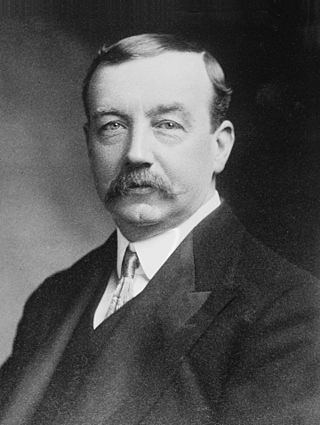 25
Arthur Henderson was a British iron moulder and Labour politician. He was the first Labour cabinet minister, won the Nobel Peace Prize in 1934 and, uniquely, served three separate terms as Leader of...
25
Arthur Henderson was a British iron moulder and Labour politician. He was the first Labour cabinet minister, won the Nobel Peace Prize in 1934 and, uniquely, served three separate terms as Leader of...
Rosalind Franklin
 25
Rosalind Elsie Franklin was a British chemist and X-ray crystallographer whose work was central to the understanding of the molecular structures of DNA, RNA, viruses, coal, and graphite. Although her...
25
Rosalind Elsie Franklin was a British chemist and X-ray crystallographer whose work was central to the understanding of the molecular structures of DNA, RNA, viruses, coal, and graphite. Although her...
Philip the Apostle
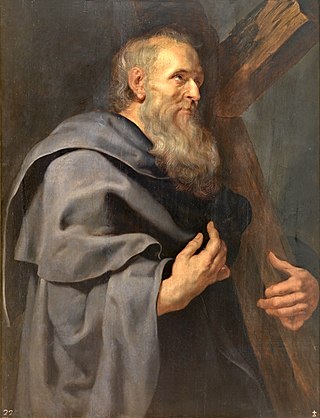 25
Philip the Apostle was one of the Twelve Apostles of Jesus according to the New Testament. Later Christian traditions describe Philip as the apostle who preached in Greece, Syria, and Asia-Minor.
25
Philip the Apostle was one of the Twelve Apostles of Jesus according to the New Testament. Later Christian traditions describe Philip as the apostle who preached in Greece, Syria, and Asia-Minor.
Richard III of England
 25
Richard III was King of England from 26 June 1483 until his death in 1485. He was the last king of the Plantagenet dynasty and its cadet branch the House of York. His defeat and death at the Battle...
25
Richard III was King of England from 26 June 1483 until his death in 1485. He was the last king of the Plantagenet dynasty and its cadet branch the House of York. His defeat and death at the Battle...
Charles Darwin
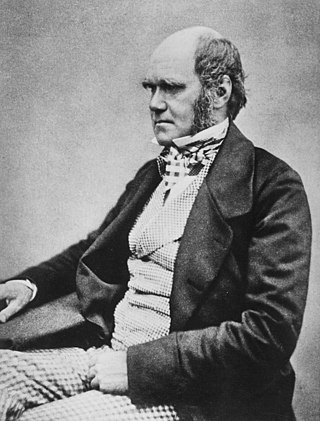 24
Charles Robert Darwin was an English naturalist, geologist and biologist, widely known for his contributions to evolutionary biology. His proposition that all species of life have descended from a...
24
Charles Robert Darwin was an English naturalist, geologist and biologist, widely known for his contributions to evolutionary biology. His proposition that all species of life have descended from a...
William Caxton
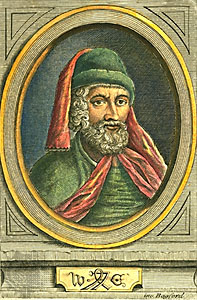 24
William Caxton was an English merchant, diplomat and writer. He is thought to be the first person to introduce a printing press into England in 1476, and as a printer to be the first English retailer...
24
William Caxton was an English merchant, diplomat and writer. He is thought to be the first person to introduce a printing press into England in 1476, and as a printer to be the first English retailer...
James Clerk Maxwell
 23
James Clerk Maxwell was a Scottish physicist with broad interests who was responsible for the classical theory of electromagnetic radiation, which was the first theory to describe electricity,...
23
James Clerk Maxwell was a Scottish physicist with broad interests who was responsible for the classical theory of electromagnetic radiation, which was the first theory to describe electricity,...
Lord Kelvin
 23
William Thomson, 1st Baron Kelvin, was a British mathematician, mathematical physicist and engineer born in Belfast. He was the professor of Natural Philosophy at the University of Glasgow for 53...
23
William Thomson, 1st Baron Kelvin, was a British mathematician, mathematical physicist and engineer born in Belfast. He was the professor of Natural Philosophy at the University of Glasgow for 53...
William Morris
 23
William Morris was an English textile designer, poet, artist, writer, and socialist activist associated with the British Arts and Crafts movement. He was a major contributor to the revival of...
23
William Morris was an English textile designer, poet, artist, writer, and socialist activist associated with the British Arts and Crafts movement. He was a major contributor to the revival of...
John Dalton
 23
John Dalton was an English chemist, physicist and meteorologist. He introduced the atomic theory into chemistry. He also researched colour blindness; as a result, the umbrella term for red-green...
23
John Dalton was an English chemist, physicist and meteorologist. He introduced the atomic theory into chemistry. He also researched colour blindness; as a result, the umbrella term for red-green...
Charles Dickens
 23
Charles John Huffam Dickens was an English novelist and social critic who created some of the world's best-known fictional characters, and is regarded by many as the greatest novelist of the...
23
Charles John Huffam Dickens was an English novelist and social critic who created some of the world's best-known fictional characters, and is regarded by many as the greatest novelist of the...
William Wallace
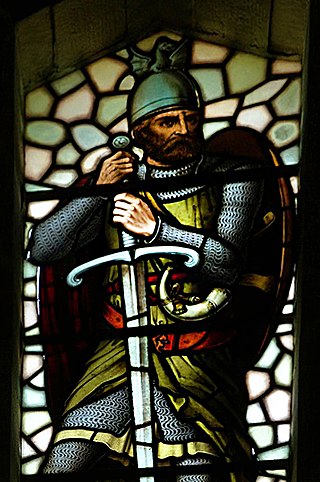 22
Sir William Wallace was a Scottish knight who became one of the main leaders during the First War of Scottish Independence.
22
Sir William Wallace was a Scottish knight who became one of the main leaders during the First War of Scottish Independence.
Oswald of Northumbria
 22
Oswald was King of Northumbria from 634 until his death, and is venerated as a saint, of whom there was a particular cult in the Middle Ages.
22
Oswald was King of Northumbria from 634 until his death, and is venerated as a saint, of whom there was a particular cult in the Middle Ages.
Robert Baden-Powell, 1st Baron Baden-Powell
 22
Lieutenant-General Robert Stephenson Smyth Baden-Powell, 1st Baron Baden-Powell, was a British Army officer, writer, founder and first Chief Scout of the world-wide Scout Movement, and founder, with...
22
Lieutenant-General Robert Stephenson Smyth Baden-Powell, 1st Baron Baden-Powell, was a British Army officer, writer, founder and first Chief Scout of the world-wide Scout Movement, and founder, with...
Walter Raleigh
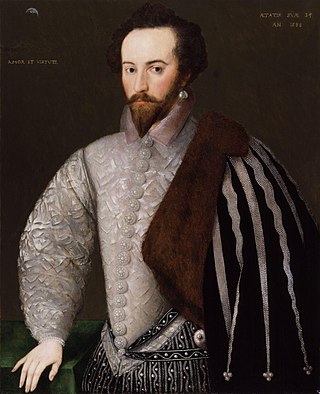 21
Sir Walter Raleigh was an English statesman, soldier, writer and explorer. One of the most notable figures of the Elizabethan era, he played a leading part in English colonisation of North America,...
21
Sir Walter Raleigh was an English statesman, soldier, writer and explorer. One of the most notable figures of the Elizabethan era, he played a leading part in English colonisation of North America,...
Augustine of Canterbury
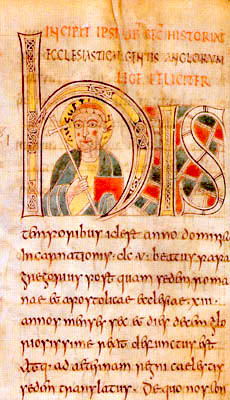 20
Augustine of Canterbury was a Christian monk who became the first archbishop of Canterbury in the year 597. He is considered the "Apostle to the English”.
20
Augustine of Canterbury was a Christian monk who became the first archbishop of Canterbury in the year 597. He is considered the "Apostle to the English”.
Bobby Moore
 20
Robert Frederick Chelsea Moore was an English professional footballer. He captained West Ham United for more than ten years, and was the captain of the England national team that won the 1966 FIFA...
20
Robert Frederick Chelsea Moore was an English professional footballer. He captained West Ham United for more than ten years, and was the captain of the England national team that won the 1966 FIFA...
Joseph Lister
 20
Joseph Lister, 1st Baron Lister, was a British surgeon, medical scientist, experimental pathologist and a pioneer of antiseptic surgery and preventive healthcare. Joseph Lister revolutionised the...
20
Joseph Lister, 1st Baron Lister, was a British surgeon, medical scientist, experimental pathologist and a pioneer of antiseptic surgery and preventive healthcare. Joseph Lister revolutionised the...
Leonard Cheshire
 20
Geoffrey Leonard Cheshire, Baron Cheshire, was a highly decorated Royal Air Force (RAF) pilot and group captain during the Second World War, and a philanthropist.
20
Geoffrey Leonard Cheshire, Baron Cheshire, was a highly decorated Royal Air Force (RAF) pilot and group captain during the Second World War, and a philanthropist.
Robert the Bruce
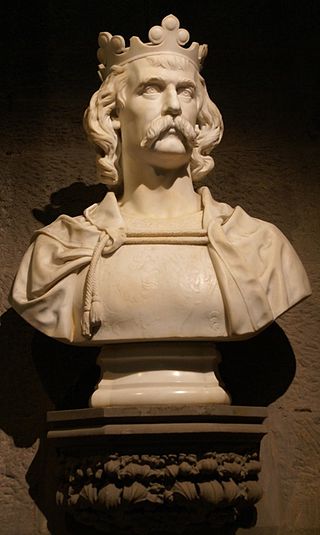 20
Robert I, popularly known as Robert the Bruce, was King of Scots from 1306 to his death in 1329. Robert led Scotland during the First War of Scottish Independence against England. He fought...
20
Robert I, popularly known as Robert the Bruce, was King of Scots from 1306 to his death in 1329. Robert led Scotland during the First War of Scottish Independence against England. He fought...
J. J. Thomson
 20
Sir Joseph John Thomson was a British physicist and Nobel Laureate in Physics, credited with the discovery of the electron, the first subatomic particle to be found.
20
Sir Joseph John Thomson was a British physicist and Nobel Laureate in Physics, credited with the discovery of the electron, the first subatomic particle to be found.
James Chadwick
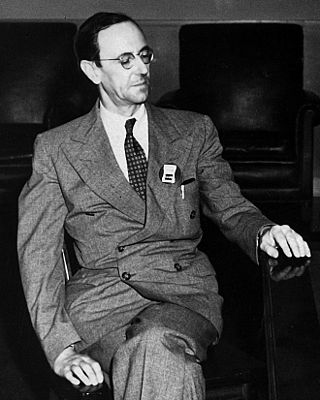 19
Sir James Chadwick, was an English physicist who was awarded the 1935 Nobel Prize in Physics for his discovery of the neutron in 1932. In 1941, he wrote the final draft of the MAUD Report, which...
19
Sir James Chadwick, was an English physicist who was awarded the 1935 Nobel Prize in Physics for his discovery of the neutron in 1932. In 1941, he wrote the final draft of the MAUD Report, which...
Clement of Rome
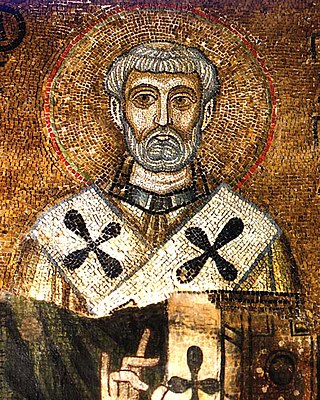 18
Clement of Rome, also known as Pope Clement I, was the bishop of Rome in the late first century AD. He is listed by Irenaeus and Tertullian as the bishop of Rome, holding office from 88 AD to his...
18
Clement of Rome, also known as Pope Clement I, was the bishop of Rome in the late first century AD. He is listed by Irenaeus and Tertullian as the bishop of Rome, holding office from 88 AD to his...
George Orwell
 18
Eric Arthur Blair was an English novelist, poet, essayist, journalist, and critic who wrote under the pen name of George Orwell. His work is characterised by lucid prose, social criticism, opposition...
18
Eric Arthur Blair was an English novelist, poet, essayist, journalist, and critic who wrote under the pen name of George Orwell. His work is characterised by lucid prose, social criticism, opposition...
Robert Louis Stevenson
 17
Robert Louis Stevenson was a Scottish novelist, essayist, poet and travel writer. He is best known for works such as Treasure Island, Strange Case of Dr Jekyll and Mr Hyde, Kidnapped and A Child's...
17
Robert Louis Stevenson was a Scottish novelist, essayist, poet and travel writer. He is best known for works such as Treasure Island, Strange Case of Dr Jekyll and Mr Hyde, Kidnapped and A Child's...
Barnes Wallis
 17
Sir Barnes Neville Wallis was an English engineer and inventor. He is best known for inventing the bouncing bomb used by the Royal Air Force in Operation Chastise to attack the dams of the Ruhr...
17
Sir Barnes Neville Wallis was an English engineer and inventor. He is best known for inventing the bouncing bomb used by the Royal Air Force in Operation Chastise to attack the dams of the Ruhr...
Bartholomew the Apostle
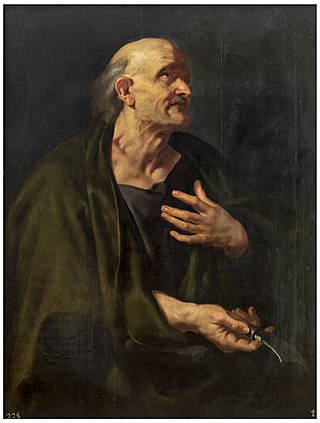 16
Bartholomew was one of the twelve apostles of Jesus according to the New Testament. Most scholars today identify Bartholomew as Nathanael or Nathaniel, who appears in the Gospel of John.
16
Bartholomew was one of the twelve apostles of Jesus according to the New Testament. Most scholars today identify Bartholomew as Nathanael or Nathaniel, who appears in the Gospel of John.
Barnabas
 16
Barnabas, born Joseph (Ἰωσήφ) or Joses (Ἰωσής), was according to tradition an early Christian, one of the prominent Christian disciples in Jerusalem. According to Acts 4:36, Barnabas was a Cypriot...
16
Barnabas, born Joseph (Ἰωσήφ) or Joses (Ἰωσής), was according to tradition an early Christian, one of the prominent Christian disciples in Jerusalem. According to Acts 4:36, Barnabas was a Cypriot...
Jane Austen
 16
Jane Austen was an English novelist known primarily for her six novels, which implicitly interpret, critique, and comment upon the British landed gentry at the end of the 18th century. Austen's plots...
16
Jane Austen was an English novelist known primarily for her six novels, which implicitly interpret, critique, and comment upon the British landed gentry at the end of the 18th century. Austen's plots...
Frank Barlow (historian)
 15
Frank Barlow was an English historian, known particularly for biographies of medieval figures. His subjects included Edward the Confessor, Thomas Becket and William Rufus.
15
Frank Barlow was an English historian, known particularly for biographies of medieval figures. His subjects included Edward the Confessor, Thomas Becket and William Rufus.
Chad of Mercia
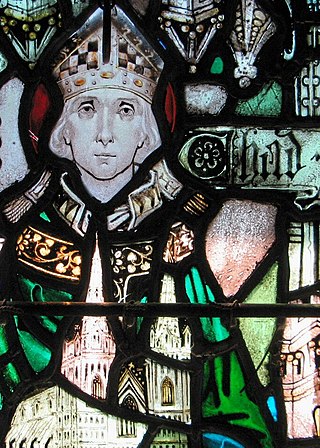 15
Chad was a prominent 7th-century Anglo-Saxon Catholic monk who became abbot of several monasteries, Bishop of the Northumbrians and subsequently Bishop of the Mercians and Lindsey People. He was...
15
Chad was a prominent 7th-century Anglo-Saxon Catholic monk who became abbot of several monasteries, Bishop of the Northumbrians and subsequently Bishop of the Mercians and Lindsey People. He was...
Saint Christopher
 15
Saint Christopher is venerated by several Christian denominations as a martyr killed in the reign of the 3rd-century Roman emperor Decius, or alternatively under the emperor Maximinus Daia. There...
15
Saint Christopher is venerated by several Christian denominations as a martyr killed in the reign of the 3rd-century Roman emperor Decius, or alternatively under the emperor Maximinus Daia. There...
Robin Hood
 15
Robin Hood is a legendary heroic outlaw originally depicted in English folklore and subsequently featured in literature, theatre, and cinema. According to legend, he was a highly skilled archer and...
15
Robin Hood is a legendary heroic outlaw originally depicted in English folklore and subsequently featured in literature, theatre, and cinema. According to legend, he was a highly skilled archer and...
Ernest Rutherford
 14
Ernest Rutherford, 1st Baron Rutherford of Nelson, was a New Zealand physicist who was a pioneering researcher in both atomic and nuclear physics. Rutherford has been described as "the father of...
14
Ernest Rutherford, 1st Baron Rutherford of Nelson, was a New Zealand physicist who was a pioneering researcher in both atomic and nuclear physics. Rutherford has been described as "the father of...
Hilda of Whitby
 14
Hilda of Whitby was a saint of the early Church in Britain. She was the founder and first abbess of the monastery at Whitby which was chosen as the venue for the Synod of Whitby in 664. An important...
14
Hilda of Whitby was a saint of the early Church in Britain. She was the founder and first abbess of the monastery at Whitby which was chosen as the venue for the Synod of Whitby in 664. An important...
Frank Whittle
 14
Air Commodore Sir Frank Whittle, was an English engineer, inventor and Royal Air Force (RAF) air officer. He is credited with having invented the turbojet engine. A patent was submitted by Maxime...
14
Air Commodore Sir Frank Whittle, was an English engineer, inventor and Royal Air Force (RAF) air officer. He is credited with having invented the turbojet engine. A patent was submitted by Maxime...
Matthew the Apostle
 14
Matthew the Apostle is named in the New Testament as one of the twelve apostles of Jesus. According to Christian traditions, he was also one of the four Evangelists as author of the Gospel of...
14
Matthew the Apostle is named in the New Testament as one of the twelve apostles of Jesus. According to Christian traditions, he was also one of the four Evangelists as author of the Gospel of...
Joseph Priestley
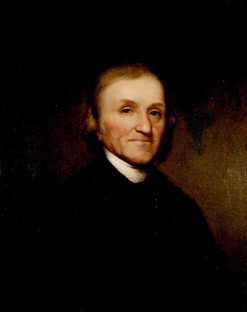 14
Joseph Priestley was an English chemist, natural philosopher, separatist theologian, grammarian, multi-subject educator, and liberal political theorist. He published over 150 works, and conducted...
14
Joseph Priestley was an English chemist, natural philosopher, separatist theologian, grammarian, multi-subject educator, and liberal political theorist. He published over 150 works, and conducted...
Hadrian
 14
Hadrian was Roman emperor from 117 to 138. Hadrian was born in Italica, close to modern Seville in Spain, an Italic settlement in Hispania Baetica; his branch of the Aelia gens, the Aeli Hadriani,...
14
Hadrian was Roman emperor from 117 to 138. Hadrian was born in Italica, close to modern Seville in Spain, an Italic settlement in Hispania Baetica; his branch of the Aelia gens, the Aeli Hadriani,...
Roger Penrose
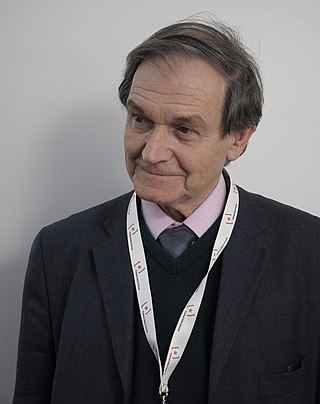 13
Sir Roger Penrose is a British mathematician, mathematical physicist, philosopher of science and Nobel Laureate in Physics. He is Emeritus Rouse Ball Professor of Mathematics in the University of...
13
Sir Roger Penrose is a British mathematician, mathematical physicist, philosopher of science and Nobel Laureate in Physics. He is Emeritus Rouse Ball Professor of Mathematics in the University of...
Agnes of Rome
 13
Agnes of Rome is a virgin martyr, venerated as a saint in the Catholic Church, Oriental Orthodox Church and the Eastern Orthodox Church, as well as the Anglican Communion and Lutheran Churches. She...
13
Agnes of Rome is a virgin martyr, venerated as a saint in the Catholic Church, Oriental Orthodox Church and the Eastern Orthodox Church, as well as the Anglican Communion and Lutheran Churches. She...
Anthony of Padua
 13
Anthony of Padua, OFM or Anthony of Lisbon was a Portuguese Catholic priest and friar of the Franciscan Order.
13
Anthony of Padua, OFM or Anthony of Lisbon was a Portuguese Catholic priest and friar of the Franciscan Order.
William Wilberforce
 13
William Wilberforce was a British politician, a philanthropist, and a leader of the movement to abolish the slave trade. A native of Kingston upon Hull, Yorkshire, he began his political career in...
13
William Wilberforce was a British politician, a philanthropist, and a leader of the movement to abolish the slave trade. A native of Kingston upon Hull, Yorkshire, he began his political career in...
Thomas Edison
 13
Thomas Alva Edison was an American inventor and businessman. He developed many devices in fields such as electric power generation, mass communication, sound recording, and motion pictures. These...
13
Thomas Alva Edison was an American inventor and businessman. He developed many devices in fields such as electric power generation, mass communication, sound recording, and motion pictures. These...
Aneurin Bevan
 13
Aneurin "Nye" Bevan PC was a Welsh Labour Party politician, noted for tenure as Minister of Health in Clement Attlee's government in which he spearheaded the creation of the British National Health...
13
Aneurin "Nye" Bevan PC was a Welsh Labour Party politician, noted for tenure as Minister of Health in Clement Attlee's government in which he spearheaded the creation of the British National Health...
Saint Patrick
 12
Saint Patrick was a fifth-century Romano-British Christian missionary and bishop in Ireland. Known as the "Apostle of Ireland", he is the primary patron saint of Ireland, the other patron saints...
12
Saint Patrick was a fifth-century Romano-British Christian missionary and bishop in Ireland. Known as the "Apostle of Ireland", he is the primary patron saint of Ireland, the other patron saints...
Simon de Montfort, 6th Earl of Leicester
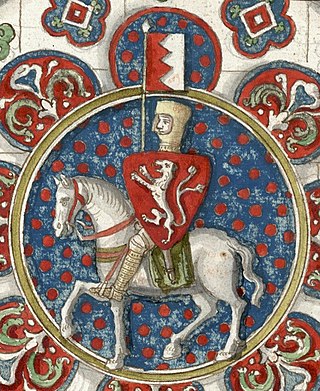 12
Simon de Montfort, 6th Earl of Leicester, later sometimes referred to as Simon V de Montfort to distinguish him from his namesake relatives, was an English nobleman of French origin and a member of...
12
Simon de Montfort, 6th Earl of Leicester, later sometimes referred to as Simon V de Montfort to distinguish him from his namesake relatives, was an English nobleman of French origin and a member of...
Ernest Shackleton
 12
Sir Ernest Henry Shackleton was an Anglo-Irish Antarctic explorer who led three British expeditions to the Antarctic. He was one of the principal figures of the period known as the Heroic Age of...
12
Sir Ernest Henry Shackleton was an Anglo-Irish Antarctic explorer who led three British expeditions to the Antarctic. He was one of the principal figures of the period known as the Heroic Age of...
Edward Elgar
 11
Sir Edward William Elgar, 1st Baronet, was an English composer, many of whose works have entered the British and international classical concert repertoire. Among his best-known compositions are...
11
Sir Edward William Elgar, 1st Baronet, was an English composer, many of whose works have entered the British and international classical concert repertoire. Among his best-known compositions are...
Henry Moseley
 11
Henry Gwyn Jeffreys Moseley was an English physicist, whose contribution to the science of physics was the justification from physical laws of the previous empirical and chemical concept of the...
11
Henry Gwyn Jeffreys Moseley was an English physicist, whose contribution to the science of physics was the justification from physical laws of the previous empirical and chemical concept of the...
Augustus
 11
Gaius Julius Caesar Augustus, also known as Octavian, was the founder of the Roman Empire. He reigned as the first Roman emperor from 27 BC until his death in AD 14. The reign of Augustus initiated...
11
Gaius Julius Caesar Augustus, also known as Octavian, was the founder of the Roman Empire. He reigned as the first Roman emperor from 27 BC until his death in AD 14. The reign of Augustus initiated...
John Logie Baird
 11
John Logie Baird was a Scottish inventor, electrical engineer, and innovator who demonstrated the world's first live working television system on 26 January 1926. He went on to invent the first...
11
John Logie Baird was a Scottish inventor, electrical engineer, and innovator who demonstrated the world's first live working television system on 26 January 1926. He went on to invent the first...
Benedict of Nursia
 11
Benedict of Nursia, often known as Saint Benedict, was an Italian Christian monk, writer, and theologian. He is venerated in the Catholic Church, the Eastern Orthodox Church, the Oriental Orthodox...
11
Benedict of Nursia, often known as Saint Benedict, was an Italian Christian monk, writer, and theologian. He is venerated in the Catholic Church, the Eastern Orthodox Church, the Oriental Orthodox...
James Prescott Joule
 11
James Prescott Joule was an English physicist, mathematician and brewer, born in Salford, Lancashire. Joule studied the nature of heat, and discovered its relationship to mechanical work. This led to...
11
James Prescott Joule was an English physicist, mathematician and brewer, born in Salford, Lancashire. Joule studied the nature of heat, and discovered its relationship to mechanical work. This led to...
William IV
 10
William IV was King of the United Kingdom of Great Britain and Ireland and King of Hanover from 26 June 1830 until his death in 1837. The third son of George III, William succeeded his elder brother...
10
William IV was King of the United Kingdom of Great Britain and Ireland and King of Hanover from 26 June 1830 until his death in 1837. The third son of George III, William succeeded his elder brother...
Edward Gibbon
 10
Edward Gibbon was an English essayist, historian, and politician. His most important work, The History of the Decline and Fall of the Roman Empire, published in six volumes between 1776 and 1789, is...
10
Edward Gibbon was an English essayist, historian, and politician. His most important work, The History of the Decline and Fall of the Roman Empire, published in six volumes between 1776 and 1789, is...
Edith Cavell
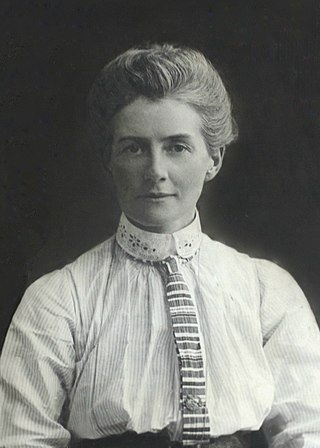 10
Edith Louisa Cavell was a British nurse. She is celebrated for treating wounded soldiers from both sides without discrimination during the First World War and for helping some 200 Allied soldiers...
10
Edith Louisa Cavell was a British nurse. She is celebrated for treating wounded soldiers from both sides without discrimination during the First World War and for helping some 200 Allied soldiers...
Edward Jenner
 10
Edward Jenner was an English physician and scientist who pioneered the concept of vaccines and created the smallpox vaccine, the world's first vaccine. The terms vaccine and vaccination are derived...
10
Edward Jenner was an English physician and scientist who pioneered the concept of vaccines and created the smallpox vaccine, the world's first vaccine. The terms vaccine and vaccination are derived...
Brigid of Kildare
 9
Saint Brigid of Kildare or Saint Brigid of Ireland is the patroness saint of Ireland, and one of its three national saints along with Patrick and Columba. According to medieval Irish hagiographies,...
9
Saint Brigid of Kildare or Saint Brigid of Ireland is the patroness saint of Ireland, and one of its three national saints along with Patrick and Columba. According to medieval Irish hagiographies,...
Charlie Chaplin
 9
Sir Charles Spencer Chaplin was an English comic actor, filmmaker, and composer who rose to fame in the era of silent film. He became a worldwide icon through his screen persona, the Tramp, and is...
9
Sir Charles Spencer Chaplin was an English comic actor, filmmaker, and composer who rose to fame in the era of silent film. He became a worldwide icon through his screen persona, the Tramp, and is...
Lady Jane Grey
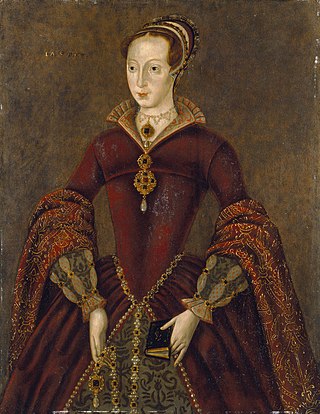 9
Lady Jane Grey, also known as Lady Jane Dudley after her marriage and as the "Nine Days' Queen", was an English noblewoman who claimed the throne of England and Ireland from 10 to 19 July 1553.
9
Lady Jane Grey, also known as Lady Jane Dudley after her marriage and as the "Nine Days' Queen", was an English noblewoman who claimed the throne of England and Ireland from 10 to 19 July 1553.
Rembrandt
 9
Rembrandt Harmenszoon van Rijn, usually simply known as Rembrandt, was a Dutch Golden Age painter, printmaker, and draughtsman. He is generally considered one of the greatest visual artists in the...
9
Rembrandt Harmenszoon van Rijn, usually simply known as Rembrandt, was a Dutch Golden Age painter, printmaker, and draughtsman. He is generally considered one of the greatest visual artists in the...
Ella Fitzgerald
 8
Ella Jane Fitzgerald was an American jazz singer, sometimes referred to as the "First Lady of Song", "Queen of Jazz", and "Lady Ella". She was noted for her purity of tone, impeccable diction,...
8
Ella Jane Fitzgerald was an American jazz singer, sometimes referred to as the "First Lady of Song", "Queen of Jazz", and "Lady Ella". She was noted for her purity of tone, impeccable diction,...
Freddie Mercury
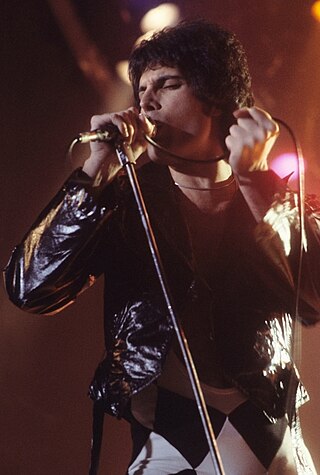 8
Freddie Mercury was a British singer and songwriter who achieved worldwide fame as the lead vocalist and pianist of the rock band Queen. Regarded as one of the greatest singers in the history of rock...
8
Freddie Mercury was a British singer and songwriter who achieved worldwide fame as the lead vocalist and pianist of the rock band Queen. Regarded as one of the greatest singers in the history of rock...
Guglielmo Marconi
 8
Guglielmo Giovanni Maria Marconi, 1st Marquis of Marconi was an Italian inventor and electrical engineer, known for his creation of a practical radio wave–based wireless telegraph system. This led to...
8
Guglielmo Giovanni Maria Marconi, 1st Marquis of Marconi was an Italian inventor and electrical engineer, known for his creation of a practical radio wave–based wireless telegraph system. This led to...
Saint Joseph
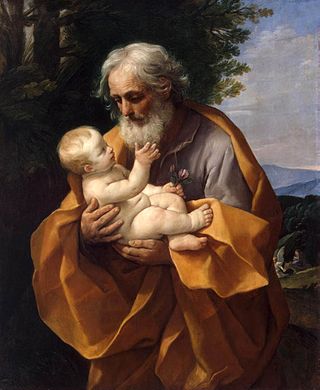 8
Joseph was a 1st-century Jewish man of Nazareth who, according to the canonical Gospels, was married to Mary, the mother of Jesus, and was the legal father of Jesus.
8
Joseph was a 1st-century Jewish man of Nazareth who, according to the canonical Gospels, was married to Mary, the mother of Jesus, and was the legal father of Jesus.
Aidan of Lindisfarne
 8
Aidan of Lindisfarne was an Irish monk and missionary credited with converting the Anglo-Saxons to Christianity in Northumbria. He founded a monastic cathedral on the island of Lindisfarne, known as...
8
Aidan of Lindisfarne was an Irish monk and missionary credited with converting the Anglo-Saxons to Christianity in Northumbria. He founded a monastic cathedral on the island of Lindisfarne, known as...
Peter Paul Rubens
 8
Sir Peter Paul Rubens was a Flemish artist and diplomat. He is considered the most influential artist of the Flemish Baroque tradition. Rubens's highly charged compositions reference erudite aspects...
8
Sir Peter Paul Rubens was a Flemish artist and diplomat. He is considered the most influential artist of the Flemish Baroque tradition. Rubens's highly charged compositions reference erudite aspects...
Jude the Apostle
 7
Jude was one of the Twelve Apostles of Jesus according to the New Testament. He is generally identified as Thaddeus and is also variously called Judas Thaddaeus, Jude Thaddaeus, Jude of James, or...
7
Jude was one of the Twelve Apostles of Jesus according to the New Testament. He is generally identified as Thaddeus and is also variously called Judas Thaddaeus, Jude Thaddaeus, Jude of James, or...
Franklin D. Roosevelt
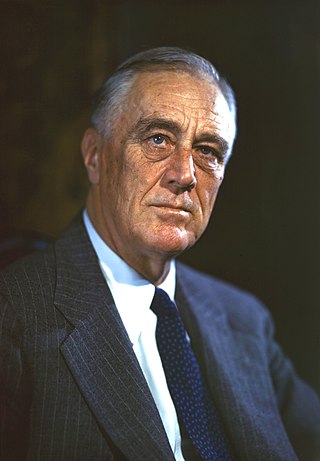 7
Franklin Delano Roosevelt, commonly known by his initials FDR, was an American statesman and politician who served as the 32nd president of the United States from 1933 until his death in 1945. He was...
7
Franklin Delano Roosevelt, commonly known by his initials FDR, was an American statesman and politician who served as the 32nd president of the United States from 1933 until his death in 1945. He was...
Homer
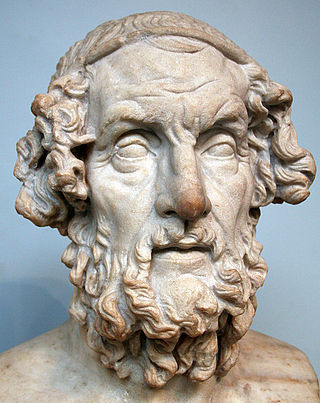 7
Homer was a Greek poet who is credited as the author of the Iliad and the Odyssey, two epic poems that are foundational works of ancient Greek literature. Homer is considered one of the most revered...
7
Homer was a Greek poet who is credited as the author of the Iliad and the Odyssey, two epic poems that are foundational works of ancient Greek literature. Homer is considered one of the most revered...
Constantine the Great
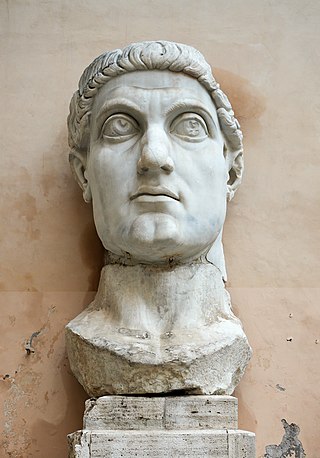 7
Constantine I, also known as Constantine the Great, was a Roman emperor from AD 306 to 337 and the first Roman emperor to convert to Christianity. He played a pivotal role in elevating the status of...
7
Constantine I, also known as Constantine the Great, was a Roman emperor from AD 306 to 337 and the first Roman emperor to convert to Christianity. He played a pivotal role in elevating the status of...
Robert H. Goddard
 7
Robert Hutchings Goddard was an American engineer, professor, physicist, and inventor who is credited with creating and building the world's first liquid-fueled rocket, which was successfully...
7
Robert Hutchings Goddard was an American engineer, professor, physicist, and inventor who is credited with creating and building the world's first liquid-fueled rocket, which was successfully...
Eric Morecambe
 7
John Eric Bartholomew, known by his stage name Eric Morecambe, was an English comedian who together with Ernie Wise formed the double act Morecambe and Wise. The partnership lasted from 1941 until...
7
John Eric Bartholomew, known by his stage name Eric Morecambe, was an English comedian who together with Ernie Wise formed the double act Morecambe and Wise. The partnership lasted from 1941 until...
Aldous Huxley
 7
Aldous Leonard Huxley was an English writer and philosopher. His bibliography spans nearly 50 books, including novels and non-fiction works, as well as essays, narratives, and poems.
7
Aldous Leonard Huxley was an English writer and philosopher. His bibliography spans nearly 50 books, including novels and non-fiction works, as well as essays, narratives, and poems.
Maria Fitzherbert
 6
Maria Anne Fitzherbert was a longtime companion of George, Prince of Wales. In 1785, they secretly contracted a marriage that was invalid under English civil law because his father, King George III,...
6
Maria Anne Fitzherbert was a longtime companion of George, Prince of Wales. In 1785, they secretly contracted a marriage that was invalid under English civil law because his father, King George III,...
Ada Lovelace
 6
Augusta Ada King, Countess of Lovelace was an English mathematician and writer, chiefly known for her work on Charles Babbage's proposed mechanical general-purpose computer, the Analytical Engine....
6
Augusta Ada King, Countess of Lovelace was an English mathematician and writer, chiefly known for her work on Charles Babbage's proposed mechanical general-purpose computer, the Analytical Engine....
Gottlieb Daimler
 6
Gottlieb Wilhelm Daimler was a German engineer, industrial designer and industrialist born in Schorndorf, in what is now Germany. He was a pioneer of internal-combustion engines and automobile...
6
Gottlieb Wilhelm Daimler was a German engineer, industrial designer and industrialist born in Schorndorf, in what is now Germany. He was a pioneer of internal-combustion engines and automobile...
Fridtjof Nansen
 6
Fridtjof Wedel-Jarlsberg Nansen was a Norwegian polymath and Nobel Peace Prize laureate. He gained prominence at various points in his life as an explorer, scientist, diplomat, humanitarian and...
6
Fridtjof Wedel-Jarlsberg Nansen was a Norwegian polymath and Nobel Peace Prize laureate. He gained prominence at various points in his life as an explorer, scientist, diplomat, humanitarian and...
William Tyndale
Francis Bacon
 6
Francis Bacon, 1st Viscount St Alban PC, known as Lord Verulam between 1618 and 1621, was an English philosopher and statesman who served as Attorney General and Lord Chancellor of England under King...
6
Francis Bacon, 1st Viscount St Alban PC, known as Lord Verulam between 1618 and 1621, was an English philosopher and statesman who served as Attorney General and Lord Chancellor of England under King...
Douglas Bader
 6
Group Captain Sir Douglas Robert Steuart Bader, was a Royal Air Force flying ace during the Second World War. He was credited with 22 aerial victories, four shared victories, six probables, one...
6
Group Captain Sir Douglas Robert Steuart Bader, was a Royal Air Force flying ace during the Second World War. He was credited with 22 aerial victories, four shared victories, six probables, one...
Lady Margaret Beaufort
 5
Lady Margaret Beaufort was a major figure in the Wars of the Roses of the late fifteenth century, and mother of King Henry VII of England, the first Tudor monarch.
5
Lady Margaret Beaufort was a major figure in the Wars of the Roses of the late fifteenth century, and mother of King Henry VII of England, the first Tudor monarch.
Lancelot
 5
Lancelot du Lac, also written as Launcelot and other variants, is a character in some versions of Arthurian legend where he is typically depicted as King Arthur's close companion and one of the...
5
Lancelot du Lac, also written as Launcelot and other variants, is a character in some versions of Arthurian legend where he is typically depicted as King Arthur's close companion and one of the...
Margaret of Anjou
 5
Margaret of Anjou was Queen of England by marriage to King Henry VI from 1445 to 1461 and again from 1470 to 1471. Through marriage, she was also nominally Queen of France from 1445 to 1453. Born in...
5
Margaret of Anjou was Queen of England by marriage to King Henry VI from 1445 to 1461 and again from 1470 to 1471. Through marriage, she was also nominally Queen of France from 1445 to 1453. Born in...
Louis Pasteur
 5
Louis Pasteur was a French chemist, pharmacist, and microbiologist renowned for his discoveries of the principles of vaccination, microbial fermentation, and pasteurization, the last of which was...
5
Louis Pasteur was a French chemist, pharmacist, and microbiologist renowned for his discoveries of the principles of vaccination, microbial fermentation, and pasteurization, the last of which was...
Pancras of Rome
 4
Pancras was a Roman citizen who converted to Christianity and was beheaded for his faith at the age of fourteen, around the year 304. His name is Greek (Πανκράτιος) and means "the one that holds...
4
Pancras was a Roman citizen who converted to Christianity and was beheaded for his faith at the age of fourteen, around the year 304. His name is Greek (Πανκράτιος) and means "the one that holds...
Alfred Nobel
 4
Alfred Bernhard Nobel was a Swedish chemist, inventor, engineer and businessman. He is known for inventing dynamite as well as having bequeathed his fortune to establish the Nobel Prize. He also made...
4
Alfred Bernhard Nobel was a Swedish chemist, inventor, engineer and businessman. He is known for inventing dynamite as well as having bequeathed his fortune to establish the Nobel Prize. He also made...
Julius Caesar
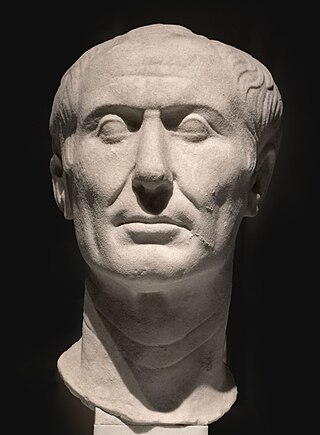 4
Gaius Julius Caesar was a Roman general and statesman. A member of the First Triumvirate, Caesar led the Roman armies in the Gallic Wars before defeating his political rival Pompey in a civil war,...
4
Gaius Julius Caesar was a Roman general and statesman. A member of the First Triumvirate, Caesar led the Roman armies in the Gallic Wars before defeating his political rival Pompey in a civil war,...
Hercules
 4
Hercules is the Roman equivalent of the Greek divine hero Heracles, son of Jupiter and the mortal Alcmena. In classical mythology, Hercules is famous for his strength and for his numerous far-ranging...
4
Hercules is the Roman equivalent of the Greek divine hero Heracles, son of Jupiter and the mortal Alcmena. In classical mythology, Hercules is famous for his strength and for his numerous far-ranging...
Erasmus
 4
Desiderius Erasmus Roterodamus was a Dutch Christian humanist, Catholic theologian, educationalist, satirist, and philosopher. Through his vast number of translations, books, essays, prayers and...
4
Desiderius Erasmus Roterodamus was a Dutch Christian humanist, Catholic theologian, educationalist, satirist, and philosopher. Through his vast number of translations, books, essays, prayers and...
Robert Boyle
 4
Robert Boyle was an Anglo-Irish natural philosopher, chemist, physicist, alchemist and inventor. Boyle is largely regarded today as the first modern chemist, and therefore one of the founders of...
4
Robert Boyle was an Anglo-Irish natural philosopher, chemist, physicist, alchemist and inventor. Boyle is largely regarded today as the first modern chemist, and therefore one of the founders of...
Marie Curie
 4
Maria Salomea Skłodowska-Curie, known simply as Marie Curie, was a Polish and naturalised-French physicist and chemist who conducted pioneering research on radioactivity. She was the first woman to...
4
Maria Salomea Skłodowska-Curie, known simply as Marie Curie, was a Polish and naturalised-French physicist and chemist who conducted pioneering research on radioactivity. She was the first woman to...
Charles Babbage
 4
Charles Babbage was an English polymath. A mathematician, philosopher, inventor and mechanical engineer, Babbage originated the concept of a digital programmable computer.
4
Charles Babbage was an English polymath. A mathematician, philosopher, inventor and mechanical engineer, Babbage originated the concept of a digital programmable computer.
Arthur Eddington
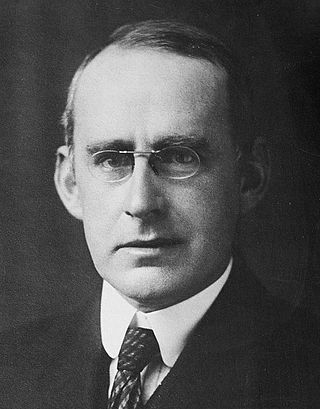 4
Sir Arthur Stanley Eddington was an English astronomer, physicist, and mathematician. He was also a philosopher of science and a populariser of science. The Eddington limit, the natural limit to the...
4
Sir Arthur Stanley Eddington was an English astronomer, physicist, and mathematician. He was also a philosopher of science and a populariser of science. The Eddington limit, the natural limit to the...
Saint Dominic
 4
Saint Dominic,, also known as Dominic de Guzmán, was a Castilian Catholic priest and the founder of the Dominican Order. He is the patron saint of astronomers and natural scientists, and he and his...
4
Saint Dominic,, also known as Dominic de Guzmán, was a Castilian Catholic priest and the founder of the Dominican Order. He is the patron saint of astronomers and natural scientists, and he and his...
James Watt
 4
James Watt was a Scottish inventor, mechanical engineer, and chemist who improved on Thomas Newcomen's 1712 Newcomen steam engine with his Watt steam engine in 1776, which was fundamental to the...
4
James Watt was a Scottish inventor, mechanical engineer, and chemist who improved on Thomas Newcomen's 1712 Newcomen steam engine with his Watt steam engine in 1776, which was fundamental to the...
Edward the Confessor
 4
Edward the Confessor was an Anglo-Saxon English king and saint. Usually considered the last king of the House of Wessex, he ruled from 1042 until his death in 1066.
4
Edward the Confessor was an Anglo-Saxon English king and saint. Usually considered the last king of the House of Wessex, he ruled from 1042 until his death in 1066.
Saint Neot (monk)
 4
Neot was an English monk. Born in the first half of the ninth century, he lived as a monk at Glastonbury Abbey. He preferred to perform his religious devotions privately, and he later went to live an...
4
Neot was an English monk. Born in the first half of the ninth century, he lived as a monk at Glastonbury Abbey. He preferred to perform his religious devotions privately, and he later went to live an...
Nelson Mandela
 4
Nelson Rolihlahla Mandela was a South African anti-apartheid activist, politician, and statesman who served as the first president of South Africa from 1994 to 1999. He was the country's first black...
4
Nelson Rolihlahla Mandela was a South African anti-apartheid activist, politician, and statesman who served as the first president of South Africa from 1994 to 1999. He was the country's first black...
Raphael
 4
Raffaello Sanzio da Urbino, now generally known in English as Raphael, was an Italian painter and architect of the High Renaissance. His work is admired for its clarity of form, ease of composition,...
4
Raffaello Sanzio da Urbino, now generally known in English as Raphael, was an Italian painter and architect of the High Renaissance. His work is admired for its clarity of form, ease of composition,...
Amy Johnson
 4
Amy Johnson was a pioneering English pilot, who was the first woman to fly solo from London to Australia.
4
Amy Johnson was a pioneering English pilot, who was the first woman to fly solo from London to Australia.
W. B. Yeats
 4
William Butler Yeats was an Irish poet, dramatist and writer, and one of the foremost figures of 20th-century literature. He was a driving force behind the Irish Literary Revival, and along with Lady...
4
William Butler Yeats was an Irish poet, dramatist and writer, and one of the foremost figures of 20th-century literature. He was a driving force behind the Irish Literary Revival, and along with Lady...
Margaret Thatcher
 4
Margaret Hilda Thatcher, Baroness Thatcher, was a British stateswoman and Conservative politician who served as Prime Minister of the United Kingdom from 1979 to 1990 and Leader of the Conservative...
4
Margaret Hilda Thatcher, Baroness Thatcher, was a British stateswoman and Conservative politician who served as Prime Minister of the United Kingdom from 1979 to 1990 and Leader of the Conservative...
Ernest Hemingway
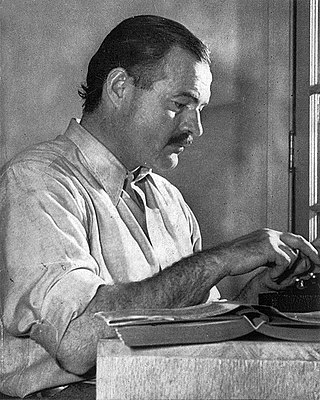 3
Ernest Miller Hemingway was an American novelist, short-story writer and journalist. Best known for an economical, understated style that significantly influenced later 20th-century writers, he is...
3
Ernest Miller Hemingway was an American novelist, short-story writer and journalist. Best known for an economical, understated style that significantly influenced later 20th-century writers, he is...
Princess Margaret, Countess of Snowdon
 3
Princess Margaret, Countess of Snowdon was the younger daughter of King George VI and Queen Elizabeth The Queen Mother. She was the younger sister and only sibling of Queen Elizabeth II.
3
Princess Margaret, Countess of Snowdon was the younger daughter of King George VI and Queen Elizabeth The Queen Mother. She was the younger sister and only sibling of Queen Elizabeth II.
Botolph of Thorney
 3
Botolph of Thorney was an English abbot and saint. He is regarded as the patron saint of boundaries, and by extension, of trade and travel, as well as various aspects of farming. His feast day is...
3
Botolph of Thorney was an English abbot and saint. He is regarded as the patron saint of boundaries, and by extension, of trade and travel, as well as various aspects of farming. His feast day is...
Joseph Haydn
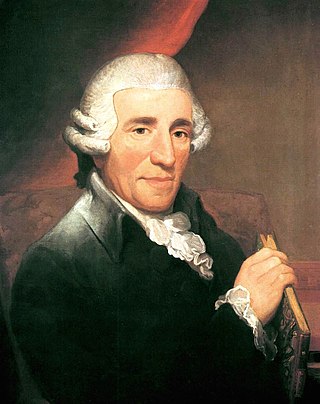 3
Franz Joseph Haydn was an Austrian composer of the Classical period. He was instrumental in the development of chamber music such as the string quartet and piano trio. His contributions to musical...
3
Franz Joseph Haydn was an Austrian composer of the Classical period. He was instrumental in the development of chamber music such as the string quartet and piano trio. His contributions to musical...
Steve Redgrave
 3
Sir Steven Geoffrey Redgrave is a British retired rower who won gold medals at five consecutive Olympic Games from 1984 to 2000. He has also won three Commonwealth Games gold medals and nine World...
3
Sir Steven Geoffrey Redgrave is a British retired rower who won gold medals at five consecutive Olympic Games from 1984 to 2000. He has also won three Commonwealth Games gold medals and nine World...
Anne McLaren
 3
Dame Anne Laura Dorinthea McLaren, was a British scientist who was a leading figure in developmental biology. She paved the way for women in science and her work helped lead to human in vitro...
3
Dame Anne Laura Dorinthea McLaren, was a British scientist who was a leading figure in developmental biology. She paved the way for women in science and her work helped lead to human in vitro...
Robert Adam
 3
Robert Adam was a British neoclassical architect, interior designer and furniture designer. He was the son of William Adam (1689–1748), Scotland's foremost architect of the time, and trained under...
3
Robert Adam was a British neoclassical architect, interior designer and furniture designer. He was the son of William Adam (1689–1748), Scotland's foremost architect of the time, and trained under...
Aleister Crowley
 3
Aleister Crowley was an English occultist, philosopher, ceremonial magician, poet, painter, novelist and mountaineer. He founded the religion of Thelema, identifying himself as the prophet entrusted...
3
Aleister Crowley was an English occultist, philosopher, ceremonial magician, poet, painter, novelist and mountaineer. He founded the religion of Thelema, identifying himself as the prophet entrusted...
Thomas More
 3
Sir Thomas More, venerated in the Catholic Church as Saint Thomas More, was an English lawyer, judge, social philosopher, author, statesman, amateur theologian, and noted Renaissance humanist. He...
3
Sir Thomas More, venerated in the Catholic Church as Saint Thomas More, was an English lawyer, judge, social philosopher, author, statesman, amateur theologian, and noted Renaissance humanist. He...
Gabriel
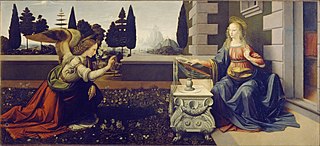 3
In the Abrahamic religions, Gabriel is an archangel with the power to announce God's will to mankind. He is mentioned in the Hebrew Bible, the New Testament, the Quran and the Kitáb-i-Aqdas. Many...
3
In the Abrahamic religions, Gabriel is an archangel with the power to announce God's will to mankind. He is mentioned in the Hebrew Bible, the New Testament, the Quran and the Kitáb-i-Aqdas. Many...
Charles Lindbergh
 3
Charles Augustus Lindbergh was an American aviator and military officer. On May 20–21, 1927, he made the first nonstop flight from New York City to Paris, a distance of 3,600 miles (5,800 km), flying...
3
Charles Augustus Lindbergh was an American aviator and military officer. On May 20–21, 1927, he made the first nonstop flight from New York City to Paris, a distance of 3,600 miles (5,800 km), flying...
Owain Glyndŵr
 3
Owain ap Gruffydd, commonly known as Owain Glyndŵr or Glyn Dŵr, was a Welsh leader, soldier and military commander in the Late Middle Ages, who led a 15-year-long revolt with the aim of ending...
3
Owain ap Gruffydd, commonly known as Owain Glyndŵr or Glyn Dŵr, was a Welsh leader, soldier and military commander in the Late Middle Ages, who led a 15-year-long revolt with the aim of ending...
Guy Fawkes
 3
Guy Fawkes, also known as Guido Fawkes while fighting for the Spanish, was a member of a group of provincial English Catholics involved in the failed Gunpowder Plot of 1605. He was born and educated...
3
Guy Fawkes, also known as Guido Fawkes while fighting for the Spanish, was a member of a group of provincial English Catholics involved in the failed Gunpowder Plot of 1605. He was born and educated...
Edmond Halley
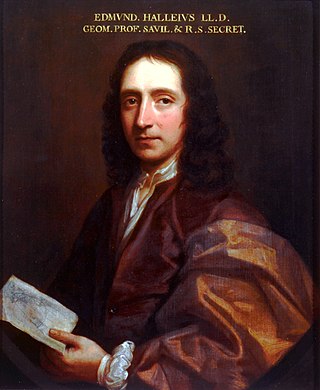 3
Edmond Halley was an English astronomer, mathematician and physicist. He was the second Astronomer Royal in Britain, succeeding John Flamsteed in 1720.
3
Edmond Halley was an English astronomer, mathematician and physicist. He was the second Astronomer Royal in Britain, succeeding John Flamsteed in 1720.
Ælfheah of Canterbury
 3
Ælfheah, more commonly known today as Alphege, was an Anglo-Saxon Bishop of Winchester, later Archbishop of Canterbury. He became an anchorite before being elected abbot of Bath Abbey. His reputation...
3
Ælfheah, more commonly known today as Alphege, was an Anglo-Saxon Bishop of Winchester, later Archbishop of Canterbury. He became an anchorite before being elected abbot of Bath Abbey. His reputation...
Horace
 3
Quintus Horatius Flaccus, commonly known in the English-speaking world as Horace, was the leading Roman lyric poet during the time of Augustus. The rhetorician Quintilian regarded his Odes as just...
3
Quintus Horatius Flaccus, commonly known in the English-speaking world as Horace, was the leading Roman lyric poet during the time of Augustus. The rhetorician Quintilian regarded his Odes as just...
David Attenborough
 3
Sir David Frederick Attenborough is a British broadcaster, biologist, natural historian, and writer. He is best known for writing and presenting, in conjunction with the BBC Natural History Unit, the...
3
Sir David Frederick Attenborough is a British broadcaster, biologist, natural historian, and writer. He is best known for writing and presenting, in conjunction with the BBC Natural History Unit, the...
Stanley Matthews
 3
Sir Stanley Matthews was an English footballer who played as an outside right. Often regarded as one of the greatest players of the British game and one of the greatest players of all time, he is the...
3
Sir Stanley Matthews was an English footballer who played as an outside right. Often regarded as one of the greatest players of the British game and one of the greatest players of all time, he is the...
George V
 3
George V was King of the United Kingdom and the British Dominions, and Emperor of India, from 6 May 1910 until his death in 1936.
3
George V was King of the United Kingdom and the British Dominions, and Emperor of India, from 6 May 1910 until his death in 1936.
Prince Andrew, Duke of York
 3
Prince Andrew, Duke of York is a member of the British royal family. He is the third child and second son of Queen Elizabeth II and Prince Philip, Duke of Edinburgh, and a younger brother of King...
3
Prince Andrew, Duke of York is a member of the British royal family. He is the third child and second son of Queen Elizabeth II and Prince Philip, Duke of Edinburgh, and a younger brother of King...
Paul Dirac
 3
Paul Adrien Maurice Dirac was an English mathematical and theoretical physicist who is considered to be one of the founders of quantum mechanics and quantum electrodynamics. He is credited with...
3
Paul Adrien Maurice Dirac was an English mathematical and theoretical physicist who is considered to be one of the founders of quantum mechanics and quantum electrodynamics. He is credited with...
Francis Crick
 3
Francis Harry Compton Crick was an English molecular biologist, biophysicist, and neuroscientist. He, James Watson, Rosalind Franklin, and Maurice Wilkins played crucial roles in deciphering the...
3
Francis Harry Compton Crick was an English molecular biologist, biophysicist, and neuroscientist. He, James Watson, Rosalind Franklin, and Maurice Wilkins played crucial roles in deciphering the...
Claude Monet
 3
Oscar-Claude Monet was a French painter and founder of impressionist painting who is seen as a key precursor to modernism, especially in his attempts to paint nature as he perceived it. During his...
3
Oscar-Claude Monet was a French painter and founder of impressionist painting who is seen as a key precursor to modernism, especially in his attempts to paint nature as he perceived it. During his...
Ferdinand Magellan
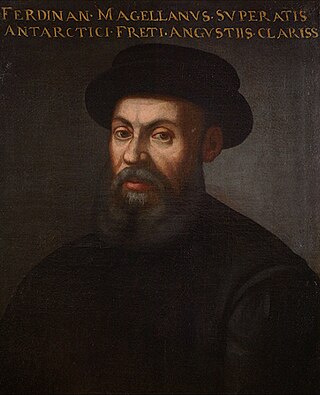 3
Ferdinand Magellan was a Portuguese explorer best known for having planned and led the 1519 Spanish expedition to the East Indies across the Pacific Ocean to open a maritime trade route, during which...
3
Ferdinand Magellan was a Portuguese explorer best known for having planned and led the 1519 Spanish expedition to the East Indies across the Pacific Ocean to open a maritime trade route, during which...
Olaf II of Norway
 3
Olaf II Haraldsson, also Olav Haraldsson, later known as Saint Olaf and Olaf the Holy, was King of Norway from 1015 to 1028. Son of Harald Grenske, a petty king in Vestfold, Norway, he was...
3
Olaf II Haraldsson, also Olav Haraldsson, later known as Saint Olaf and Olaf the Holy, was King of Norway from 1015 to 1028. Son of Harald Grenske, a petty king in Vestfold, Norway, he was...
Cenydd
 3
Saint Cenydd, sometimes anglicised as Saint Kenneth, was a Christian hermit on the Gower Peninsula in Wales, where he is credited with the foundation of the church at Llangennith.
3
Saint Cenydd, sometimes anglicised as Saint Kenneth, was a Christian hermit on the Gower Peninsula in Wales, where he is credited with the foundation of the church at Llangennith.
Alan Turing
 3
Alan Mathison Turing was an English mathematician, computer scientist, logician, cryptanalyst, philosopher and theoretical biologist. Turing was highly influential in the development of theoretical...
3
Alan Mathison Turing was an English mathematician, computer scientist, logician, cryptanalyst, philosopher and theoretical biologist. Turing was highly influential in the development of theoretical...
Dogmael
 3
Saint Dogmael was a 6th-century Welsh monk and preacher who is considered a saint. His feast day is 14 June.
3
Saint Dogmael was a 6th-century Welsh monk and preacher who is considered a saint. His feast day is 14 June.
Emmeline Pankhurst
 3
Emmeline Pankhurst was a British political activist who organised the British suffragette movement and helped women win the right to vote. In 1999, Time named her as one of the 100 Most Important...
3
Emmeline Pankhurst was a British political activist who organised the British suffragette movement and helped women win the right to vote. In 1999, Time named her as one of the 100 Most Important...
William Barefoot
 3
William Barefoot was a notable local politician in south-east London during the early part of the 20th century.
3
William Barefoot was a notable local politician in south-east London during the early part of the 20th century.